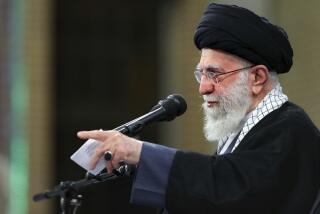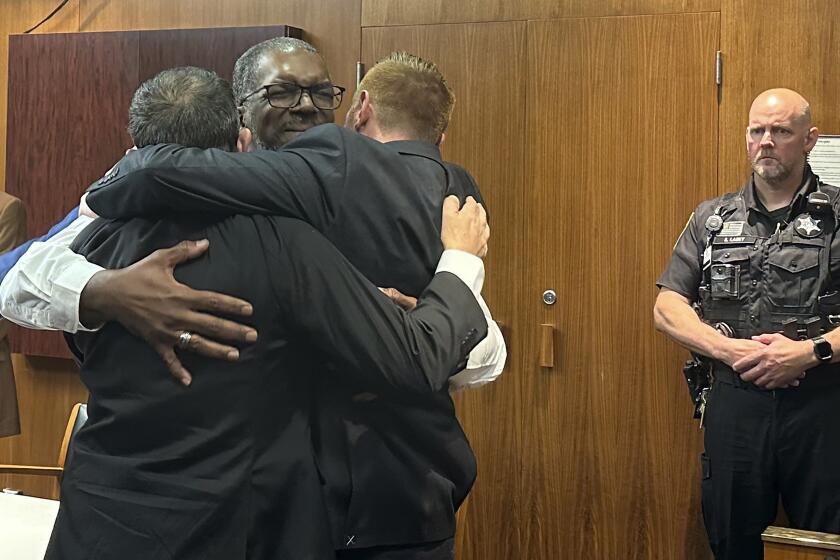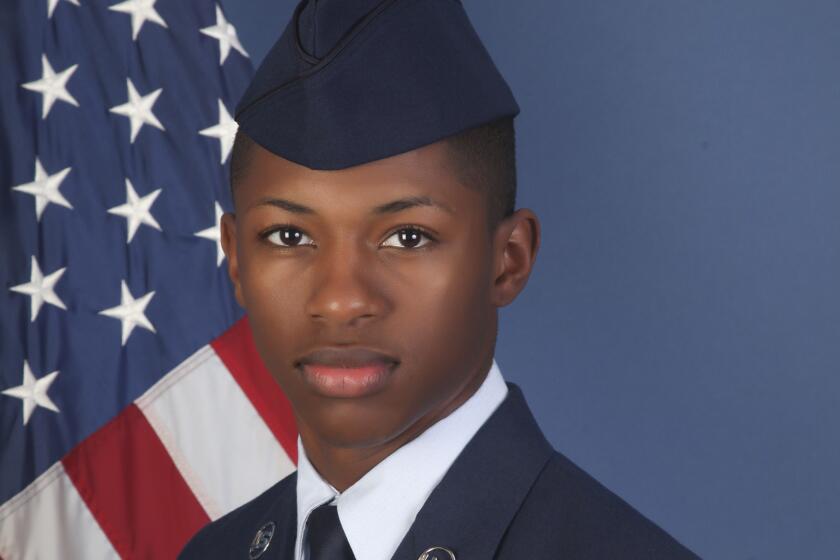Ex-CIA Chief Defends Role of Vietnamese in Little Saigon
Former CIA Director William E. Colby praised members of the county’s Vietnamese exile community Sunday, calling them “hard-working” Americans who have had a positive influence on America.
Underscoring opportunities for refugees in the United States, Colby told a predominantly Vietnamese audience of more than 200 people in Westminster’s Little Saigon that he recently sat next to the Air Force Academy’s top graduate, who happens to be Vietnamese-born.
“That’s the kind of accomplishments Vietnamese bring to the United States,” he said. “That’s the kind America needs.”
Colby’s comments in a speech at the Nguyen Khoa Nam Center contrasted sharply, Vietnamese leaders noted, with those of Westminster City Councilman Frank Fry Jr., who told Vietnamese veterans last week, “If you want to be South Vietnamese, go back to South Vietnam.”
Colby, in his first visit to Little Saigon, spoke about forming the American Committee for a Free Vietnam. He said he had been briefed about Fry’s comments and the controversy they caused.
After his talk, Colby said the controversy is “the same kind of thing that the Italians had to go through.”
“But if you can have a St. Patrick’s Day Parade for the Irish or a special day for the Italians, why not let them (Vietnamese veterans) have their parade here?” Colby asked.
Fry’s statement was made in a televised City Council meeting after the council denied a parade permit sought by Vietnamese veterans.
Fry has denied that his statements were racially motivated but has maintained they were a personal expression intended to encourage assimilation by Vietnamese people into the U.S. mainstream.
Instead of having their own parade, Fry said Vietnamese should commemorate their war dead on a U.S. holiday, such as Memorial Day or Veterans Day.
Directed CIA Until 1976
Hundreds of Vietnamese packed into the Nguyen Khoa Nam Center to hear Colby, who directed the Central Intelligence Agency from 1973 until his retirement in 1976.
Many in the audience, such as Cypress businessman Phong Tran, said they remember Colby from his Vietnam days, including the former director’s role as head of the Phoenix program directed against the Viet Cong. The CIA also had close contacts with a group of generals who staged a coup in 1963 in which President Ngo Dinh Diem was killed.
“Here we had a former high-ranking American official involved with something called Americans for a Free Vietnam, and we wanted to know about the committee, so we invited him to speak,” Tran said. “After all, the Vietnamese community in Orange County is known worldwide as the capital of the Vietnamese overseas.”
The committee that Colby heads was recently incorporated as a private, nonprofit organization based in Washington.
The committee is nonpolitical and is designed, Colby said, to educate the American people, “including those who served there, to help Americans think about Vietnam and support changes for freedom there.”
He said the informational group will help change U.S. opinion the in same way as the American Committee for Freedom in Afghanistan did.
The Vietnam panel’s new executive director, Karen McKay, also headed Afghanistan committee, he said.
During his talk, Colby repeatedly mentioned the recent Soviet pullout from Afghanistan as positive evidence that the “Communist world is withdrawing,” including the Vietnamese from Cambodia.
Human Rights ‘Disaster’
“Now you see the Soviets pulling out of Afghanistan, and we hope to do the same with Vietnam,” he said to loud applause.
Human rights, political liberty and economic rights have “been a disaster” under the North Vietnamese, he said.
“Vietnam could be a titan today if it didn’t have the present restrictions,” he said, urging Vietnamese to contact relatives in Vietnam to tell them that a better way to live “does exist.”
“We want to bring change in Vietnam,” he said to applause. “It is quite obvious that to bring about political change you need a political base, a political force to make it work. It can be natural or helped to grow so that everyone demands it.
“I’m convinced that if we keep the pressure on, we can bring freedom in Vietnam.”
More to Read
Sign up for Essential California
The most important California stories and recommendations in your inbox every morning.
You may occasionally receive promotional content from the Los Angeles Times.






